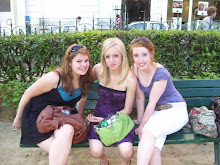Chapter offers individual sections on the representations of sexuality, gender and ethnicity in contemporary British Cinema. This chapter also divulges into the ways in which British Cinema has represented the perspectives and experiences of those dwelling in Contemporary Britain.
SEXUALITY--> Sexuality in British films has substantially changed over time. Also, it goes on to explain about how 'sexless' British cinema is, and how it always has complications and is never straight forward. Daniel Jaw says "another British film that approaches on erotically charged subject only to render it almost entirely sexless" (2005:74)
Sexuality is portrayed as the extremities - usually flippant (things such as comedies) or joylessly earnest (self destructive). Presented as pleasure-free
Portrayed as unusual - not a true representation and reflection of society. Eg, desires of the elderly (The Mother 2003), incestuous relationships (Song of the Songs 2006), and the workings of the sex industry (The Escort 2006).
Prominence of homosexuality- Dispersed across a range of subjects/genres eg homosexuality is becoming more normal and household. Mainstream films where homosexuality is prominent- The Full Monty + Billy Elliot where homosexual characters are 'pushed to the fringes'
CLASS- "According to the results of a poll carried out by the Guardian newspaper, ten years of Labour rule has failed to create a classless society." A huge majority of people are certain that their social standing determines the way they are judged (Glover 2007).
Class systems are a central or subtextual role to a plethora of films. Kaplan argues that Brassed Off, The Full Monty and Billy Elliot- all Northern set films that centre around a degrading heavy industry and a dismantling of union powers under the Conservative party in the 80's and 90's- all resolute in a positive, euphoric New Labour government.
Class also causes problems between characters in films. Films such as Pride and Prejudice and Atonement involve problematic relationships between characters positioned differently on the social scale.
At the turn of the millennium, Films such as Brassed Off, The Full Monty and Trainspotting all showed a clear class-based society, whereas the politics at the time was under Labour who were introducing a classless society.
ETHNICITY- Yasmin Alibhai-Brown accuses the British Film Industry of being 'myopic' in its failure to document and represent the experiences of ethnic minorities.
Perceived 'whiteness' of British film culture- singling out Richard Curtis as misrepresentative. Notting Hill, in particular "could not have tried harder to whiten the most famously black area in London" (2001:159)
However, the assimilation of British Asian narratives, characters and creative talent within UK film culture is one of the biggest success stories of recent British Cinema. Bend it like Beckham was overwhelmingly positive- parallels the achievements of its British Asian heroine with the achievements of a white English footballing hero suggesting that Britain can now be perceived as a more integrated and unified community.

1 comment:
Lucy,
This is really detailed and shows that you are ready to step up to A2. Now see if you can apply these ideas across the next few lessons and in the homeworks I will be setting. I am pleased!
Mrs B
Post a Comment